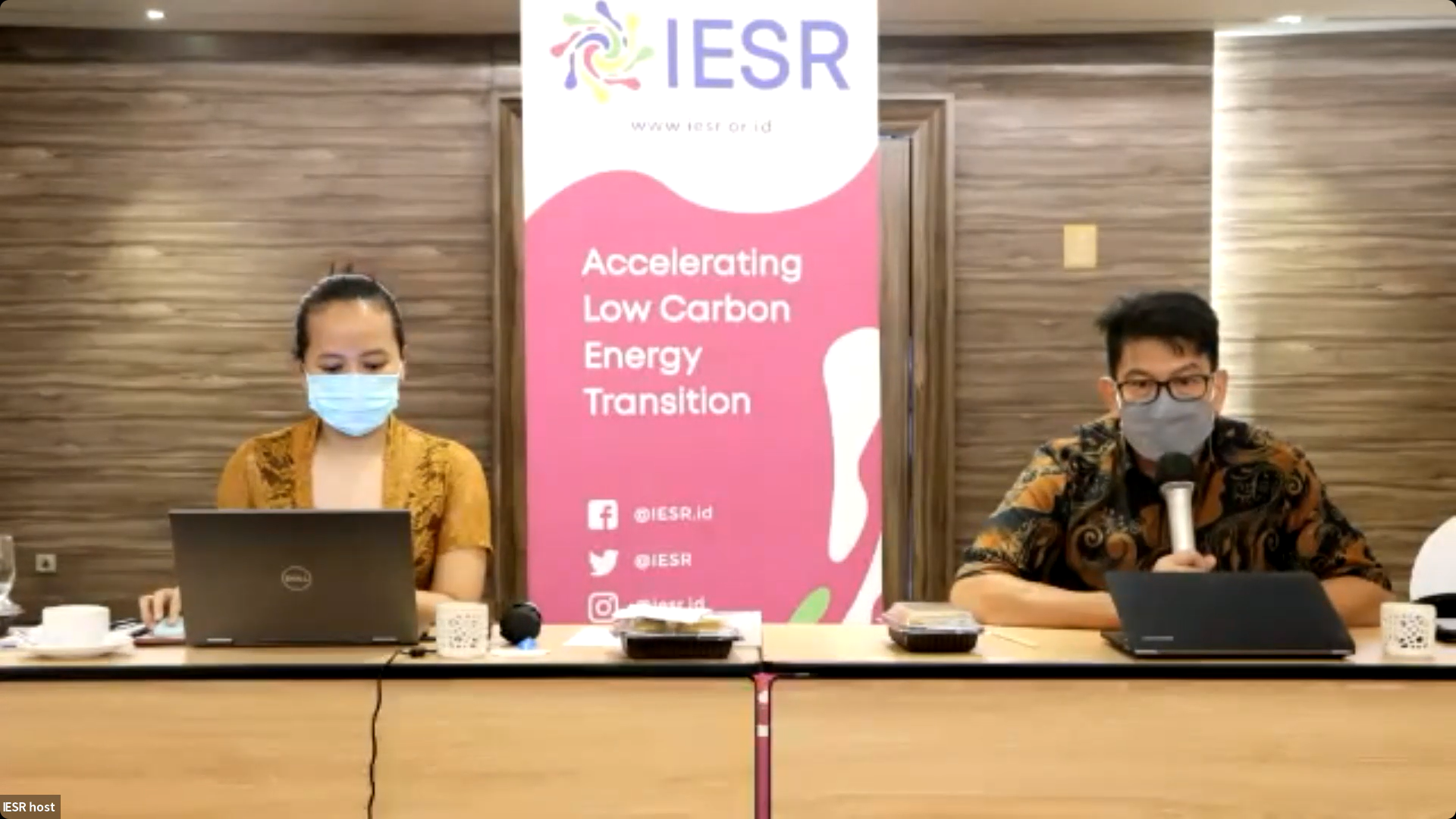Jakarta, March 15, 2022 – The development of rooftop solar PV in Indonesia in the last three years has been very rapid. Citing records from the Ministry of Energy and Mineral Resources, there is a significant increase in installed capacity from less than 1.6 MW in 2018 to 48.79 MW in 2021. This is certainly encouraging. Solar power has become a clean energy that costs one of the cheapest today. The massive use of solar energy is the Indonesian government’s strategy to achieve the target of a 23% renewable energy mix by 2025. In addition to large-scale PV projects, the government has launched rooftop PLTS as a National Strategic Project (Proyek Strategis Nasional – PSN) of 3.6 GW.
In addition to utilizing the technical potential of solar energy in the areas where it operates, there is a need in the commercial and industrial sectors to use clean energy in their production and business operations. Nurul Ichwan, Deputy of Investment Planning – BKPM in the webinar “Business Going Green” organized by the Ministry of Energy and Mineral Resources and the Institute for Essential Services Reform, said that as many as 349 multinational companies have issued commitments to use 100% renewable energy in their business activities (RE100).
“In addition, other regulations such as the carbon border adjustment mechanism which will be implemented in the European Union will certainly encourage companies to switch to renewable energy so that they can be competitive with market demands, the easiest is rooftop solar power,” explained Ichwan.
Ichwan also added that as an offtaker, PLN plays an important role in this energy transition process.
“The big consideration lies with PLN, if they cannot receive the maximum supply of renewable energy, this transition process will not run quickly,” he explained.
The industrial sector’s need to reduce carbon emissions was justified by Karyanto Wibowo, Director of Sustainable Development DANONE, who explained that his company continues to strive to reduce greenhouse gas emissions from its business activities, starting from energy efficiency, carbon offsetting, and installing rooftop solar panels on factory facilities.
“We plan to use 100% renewable energy (RE100) in 2030, currently we have installed rooftop solar panels with a total capacity of 6.2 MWp in 5 locations. With this installation, only 15 percent of clean energy is produced, we still have to catch up to another 85 percent until 2030,” he explained.
Karyanto continued that regulatory innovation for the power wheeling scheme would greatly assist the industrial sector in utilizing renewable energy.
From the developer side, George Hadi Santoso, Vice President of Marketing Xurya Daya, highlighted several problems with installing rooftop solar panels related to permits from PLN.
“We encountered many obstacles in West Java and Central Java. PLN is not responsive, and has not implemented regulations issued by the Ministry of Energy and Mineral Resources. We were once asked to become premium consumers first,” explained George.
The availability of export-import kWh meter is also still a problem with the slow flow of roof PV installations.
Aries, PLN’s APP Division, who was also present online clarified that the regulations currently being implemented by PLN still refer to the Minister of Energy and Mineral Resources Regulation 49/2018 which was revealed in the PLN Directors Regulations number 18 and 49. The derivative rules for the Minister of Energy and Mineral Resources Regulation number 26 /2021 which is an update of Ministerial Regulation 49/2018 regarding rooftop solar is still in the process of being drafted by PLN.
“Services at PLN units are strongly influenced by queuing conditions. It is necessary to reorganize the service mechanism in each unit so that all consumers can be served properly,” explained Aries.
Fabby Tumiwa, Executive Director of IESR and General Chair of the Indonesian Solar Energy Association, reminded that the Minister of Energy and Mineral Resources Regulation No. 26/2021 has officially taken effect as of January 22, 2022, so it should have been implemented by that date.
“I hope this condition can be resolved soon so that there is clarity for licensing arrangements from 15 days to 5 days,” said Fabby.
The service industry that attended the ‘Business Going Green’ forum shared their experiences for taking part in this decarbonization effort. Antonius Augusta, Executive Director of Deloitte Indonesia, stated that in his institution, emission reduction actions are derived to individual actions.
“Globally, we are committed to using 100% renewable energy by 2030 in office buildings and using electric vehicles as operational vehicles. In Indonesia itself, sustainability action is carried out by looking again at work methods to reduce business trips. Some employees have also used rooftop solar panels as a personal initiative to help reduce emissions,” explained Augusta.
The selection of vendors and suppliers who also have a strong commitment to sustainability is one of Pricewaterhouse Coopers (PwC) Indonesia’s strategies. Marina Mallian, Human Capital Business Partner of PwC Indonesia, explained that the company is more focused on sustainable actions that are integrated in the daily activities of employees, such as prioritizing local meeting destinations as well as doing carbon offsetting.
“Installing renewable energy such as solar PV is a bit difficult, because the building (office) is not ours. Even for changing vehicles to EVs (electric vehicles), we have concerns about the availability of battery charging infrastructure.”

